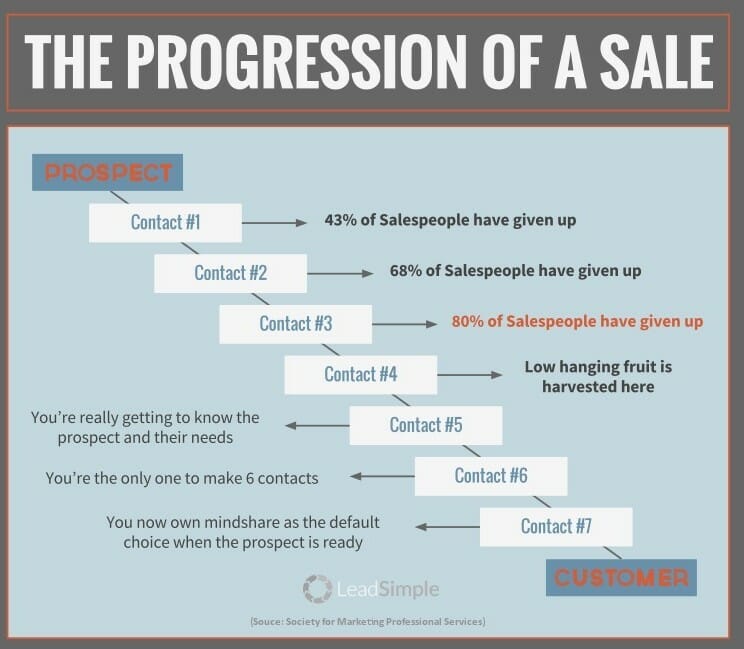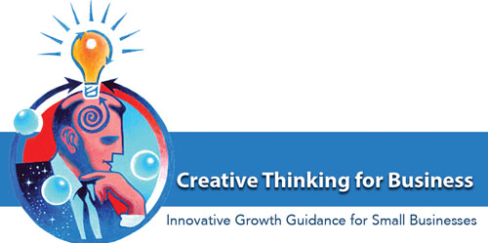 Sales wisdom is everywhere. There are so many excellent training resources and information available that the task of learning how to improve sales skills can be baffling and overwhelming.
Sales wisdom is everywhere. There are so many excellent training resources and information available that the task of learning how to improve sales skills can be baffling and overwhelming.
The sales skills question to ask is, what is relevant to me?
I have been playing the sales game for close to 40 years. Over that time, I learned that sales is the number one skill business owners need to polish. The truth is, every business owner is a salesperson, whether they realize it or not.
As a result, it’s essential to have your sales skills honed and in play.
In this post, I’ll lay out guidelines on how to improve sales skills in a way that will assist you in opening the door to business growth and increased revenue.
Start by understanding the buyer’s mind
When it comes to your buyer, there is one crucial fact to embrace. The buyer does not want to purchase from you.
The buyer is seeking to solve a problem or create a better situation in their business or life.
Step one in understanding the buyer’s mind is to know the problem they want to resolve or the situation they seek to improve.
Step two is to get comfortable articulating the value your business provides that solves the challenge or improves the situation for your buyer.
Don’t start a sales conversation talking about the value your company offers. Instead, start every sales conversation focused on the buyer. In other words, focus on the buyer over your business.
You could start by acknowledging the buyers choice to talk to you, “I’m glad we have a chance to talk today. What was it that inspired you to reach out and connect?”
Then listen and focus on what the prospective client is telling you. Don’t think, don’t talk, listen.
Bonus tip: you can improve your listening skills by taking notes, to better understand what the buyer is telling you.
Jot down the problem the buyer is trying to resolve or the situation they are seeking to improve.
Ask, “What will happen (or change) when you resolve (improve) this situation?”
Ask questions to understand first. Don’t sell, listen. Get the facts from the buyer’s perspective. Then talk about the improvement you could create.
The secret sales skill to develop is follow-up

Lead Simple is the CRM professional property managers use to manage their sales pipelines and grow their businesses.
I like their ideas because I know people in that industry and realize what an intense sales job property management is.
The chart, I posted above, establishes the importance of follow up. Notice that the sale is made after contact # 7.
Also, notice that you don’t get to know the prospective buyer’s mindset until you reach follow up touch # 5.
We are not talking about only making phone calls.
Follow up can include various touchpoints such as phone, text, video, educational information, blog posts relevant to the buyer’s needs, and social media connection, as a starting point.
Multiple touchpoints allow you to follow up with buyers on their terms and not yours.
To give you an idea of a follow-up plan, here is Lead Simple’s ideas to improve follow up results.
While the chart focuses on the property management industry, the points are relevant for any businesses sales follow-up program.
Nine ways to radically improve your follow up results
1. Use a follow-up schedule
2. Use different contact formats
3. Time follow-ups for maximum impact
4. Leverage email templates
5. Track ACTUAL contact attempts
6. Always get agreement on next steps (with each contact)
7. Use content to expand the range of potential touchpoints
8. Track email opens and click-throughs
9. Use call down lists
Follow up is the first place the sales effort gets off track. Most people conducting sales never follow up after call number two. Develop a plan for follow up and follow the steps on every outreach attempt to increase sales and revenue for your business.
Bonus tip: Use a CRM program to track your follow-up “touches” and keep track of your progress with each prospective client.
Why should I choose your business? The power of understanding the buyer’s mind
The difference between your business and your competitors is a question that buyers are asking themselves. It’s essential to set your business apart from the competition, so your buyer can see that difference.
A simple way to set your business apart is to stop selling and start asking questions to understand the buyer’s situation today. Then listen and jot down the answers they give you.
The fact is, during the initial sales conversation, you don’t know if the buyer is a candidate for your service or not.
The average salesperson tries to convince the buyer that their company is the best choice.
Set your business apart quickly by becoming a trusted partner in helping the buyer make the best decision for their unique situation.
Ask background questions like, “What are you doing now?” This question helps you to understand how the buyer is working with the issue today.
Find out, “Why do you want to change your situation?” So, you can discover why the buyer is looking for a new solution.
Then inquire about their ideal situation. “If you could have anything you want to resolve (or improve) your situation, what would that ideal situation look like for you?”
Don’t sell. Ask questions and engage in conversations.
Bonus tip: Understand that in today’s world, sales is not persuasion. Sales is a conversation that leads to providing a solution to address and resolve buyer needs or concerns.
Sales is a process of ongoing communication
Sales is not a one-time event. Instead, it is consistently communicating ideas, information, and trust-building education that helps a buyer become comfortable with you, allowing them to move forward with a purchase comfortably.
Before a sales conversation occurs or when you’re attempting to follow up, send educational information, FAQ’s, case studies from past work you did, anything that will inform the buyer as to what you offer and the value it provides them.
After a sales conversation, but before the buyer makes a purchase, keep nurturing the relationship.
A proposal, followed by case studies, client reviews, actionable advice, how-to information are all helpful in continuing the conversation and setting your business apart from the competition.
After the sale, with your new client, continue the conversation.
Send new information, that’s relevant to that buyer’s interests.
Remember them on special days like birthdays and anniversaries
Holiday gifts and greetings can go a long way in making your clients feel valued.
The bottom line is to care about your clients. When you do, they will care for you.
Any communication that helps your buyer achieve more value from knowing you and your business goes a long way in building the relationship and keeping your business top of mind when it’s time for the next purchase.
Sales is a skill you can learn, but practice creates proficiency
 It’s easy to learn sales skills. As I mentioned at the beginning of this article, there are many great resources for training and information.
It’s easy to learn sales skills. As I mentioned at the beginning of this article, there are many great resources for training and information.
However, learning is only the first step. Practicing what you learn consistently is how you’ll become proficient in your selling abilities.
Don’t make it harder than it is. Remember the steps we discussed in this article.
Understand the buyer’s mind.
Have a documented follow up plan.
Set your business apart by not selling, but asking questions to become a trusted advisor, helping the buyer get the outcome they are seeking.
Remember that sales is not persuasion but a conversation. Be interested IN the buyer to become attractive TO the buyer.
These are simple steps, but when embraced and practiced consistently go a long way in increasing revenues for your business.
Over to you now. What idea would you offer that helped you to improve your sales skills? I’d enjoy reading what you discovered.
Leave your idea as a comment and be sure to ask any questions you have on improving your sales skills and systems.
I’ll be happy to respond with answers to your questions.




This is a great article. I graduated in Communications: Sales and Advertising (but that was a long time ago). I agree that people don’t want to be “sold to.” They want to solve a problem and you need to provide a solution to their problems and they need to know how they will be “better off” after your product or service. It’s important to me as a consumer to feel like I trust someone and that I’m not being “sold to.” Getting to know a customer so you can actually help them is the best way to go! I like that best as a customer. Sales can be so tricky.
That is so true, Rebecca. As the saying goes, everyone likes to buy but no one likes to be sold to. I appreciate your thoughts. It sounds like you have a great grasp on sales of today. Getting to know your client, solving their issues or improving their situation then building a community around your brand is a sales key today.
Very nice article! Sales can be a very tricky subject that requires much patience in order to achieve success. This article provides many sales tips. I really like when you put in the percentage of the salesperson who typically quit when achieving contacts. And like you said, practice makes perfect, just learning won’t be enough in order to reach your goal.
It sounds as if you’re speaking from experience in moving forward in the sales journey, Jose. The follow-up percentages of dropping contact too soon are mind-boggling, I agree. Communicating value consistently is key. Setting up a process and practicing it consistently turns average salespeople into productive (and profitable) sales professionals. I’m glad you had that take-away from the article. Thank you for commenting and sharing your perspective.